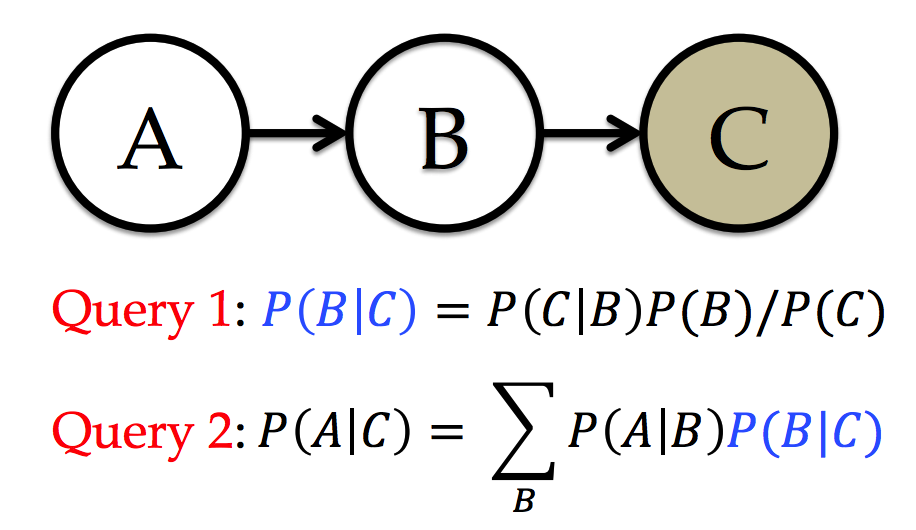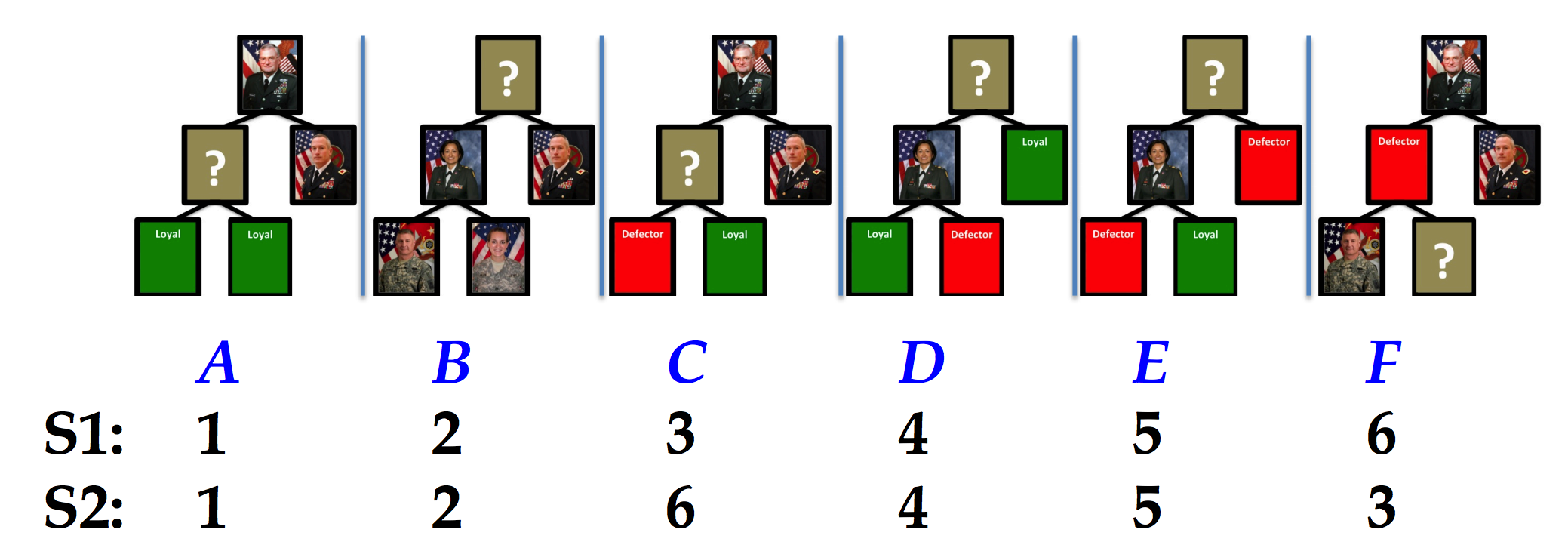Amortized Inference in Probabilistic Reasoning
WHY?
Former studies on probabilistic reasoning assume that reasoning is memoryless, which means all the inference occur independently without the reuse of previous computation.
WHAT?
This paper tried to prove that probabilistic reasoning process of human is a amortized inference. When some queries are parts of complex queries, brain memorize or cache the sub-inference in order to solve complex query.  In this bayesian network, the result of the first query can be used for the second query saving time and computation. This means that individual difference in the answer of the simple query can propagate to the complex query.
In this bayesian network, the result of the first query can be used for the second query saving time and computation. This means that individual difference in the answer of the simple query can propagate to the complex query.  This paper conducted an experiment of performing a series of inference tasks to decide whether or not a soldier is loyal or defector. The order of the tasks were different among two groups. The difference in order intend to provide the first group a chance to reuse the information from task C to solve task E.
This paper conducted an experiment of performing a series of inference tasks to decide whether or not a soldier is loyal or defector. The order of the tasks were different among two groups. The difference in order intend to provide the first group a chance to reuse the information from task C to solve task E.
So?
In the first group, the result of task C was meaningful predictor of the result of task E. On the other hand, it was not the case in the second group. The time shortening effect of two groups was different too. The paper concluded that human reuse the previous inference for complex task.
Critic
Short and simple experiment, but great insight.
